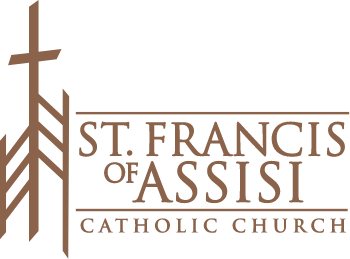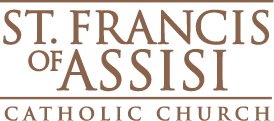As we approach the Solemnity of All Saints on November 1, more commonly known as All Saints Day, it is essential to remember those who enjoy the company of Christ in Heaven but also to carry on that remembrance to those who have yet to reach “their heavenly home,” a commemoration for those in purgatory that is made on November 2.1 The Catechism reminds us that “Purgatory is a state of final purification after death and before entrance into heaven for those who died in God’s friendship, but were only imperfectly purified; a final cleansing of human imperfection before one is able to enter the joy of heaven.”2 Simply put, purgatory is where we are cleansed of any remaining attachment to sin before entering heaven.
But why is it important to remember those currently undergoing this purification? Because “a perennial link of charity exists between the faithful who have already reached their heavenly home, those who are expiating their sins in purgatory, and those who are still pilgrims on earth.”3 Further, as the Catechism tells us, there “is, too, an abundant exchange of all good things [and] the holiness of one profits others well beyond the harm that the sin of one could cause others.”4 Thus, as the saints pray, they add to the treasury of the Church, and it is through their intersession that the “contrite sinner [can] be more promptly and efficaciously purified of the punishments for sin.”5 This is partly why, as Catholics, we are called to find recourse in the saints and in a particular way on All Saints Day.
The Church’s treasury consists of the “spiritual goods of the communion of saints … the infinite value, which can never be exhausted, which Christ’s merits have before God.”6 Part of the treasury includes not just the merits of Christ and the “prayers and good works of the Blessed Virgin Mary” but also the “prayers and good works of all the saints, all those who have followed in the footsteps of Christ the Lord.”7 As pilgrims on Earth striving for perfection, however, we add to this treasury in two ways. The first is through engaging in the spiritual work of mercy, praying for the dead, and asking Christ, Mary, and the Saints to intervene on behalf of the deceased. The second is by obtaining what are known as indulgences.8
Indulgences are obtained “through the Church who, by virtue of the power of binding and loosing granted her by Christ Jesus, intervenes in favor of individual Christians and opens for them the treasury of the merits of Christ and the saints.”9 The Church invites the faithful to works of “devotion, penance, and charity” as a means to obtain these indulgences under specific criteria, so that the “temporal punishments due for their sins may be remitted.”10
Various spiritual works can be done to gain indulgences. Indulgences applicable to the faithful departed, specifically only the souls in purgatory, can be “granted to the faithful who on any and each day from November 1 to 8, devoutly visit a cemetery and pray” or “on All Souls day … devoutly visit a church or an oratory and recite an Our Father and the Creed.”11 For the faithful completely detached from sin (including venial sin) and in a state of grace, three conditions must be met for a plenary or full indulgence: sacramental confession must be made, eucharistic communion received, and a prayer given for the Sovereign Pontiff.12 These conditions may be made within a few days of the work. The plenary indulgence is reduced to a partial indulgence if the faithful is still attached to sin, including venial sin.
As members of the body of Christ linked to the communion of saints, it is our responsibility to help our brothers and sisters in Christ come to rest in their eternal heavenly home. During this particular season of the liturgical year, there is no better way to do this than to find recourse in the Saints on All Saints Day, that they continue to build the Church’s treasury for the benefit of those in purgatory and to assist in that end by remembering the faithful departed on All Souls Day.
Matthew Weller – SFA Theologians Guild Member
SOURCES:
1. CCC 1475
2. CCC glossary “Purgatory”
3. CCC 1475
4. CCC 1475
5. CCC 1475-6
6. CCC 1476
7. CCC 1476
8 . CCC 1479
9. CCC 1478
10. CCC 1478-9
11. Manual for Indulgences (1999). Read for more on specific guidelines
12. Manual for Indulgences (1999). Para N20

